True Vision
films that make a difference
The Hunt For Britain's Sex Gangs
Back to ‘Our Films’
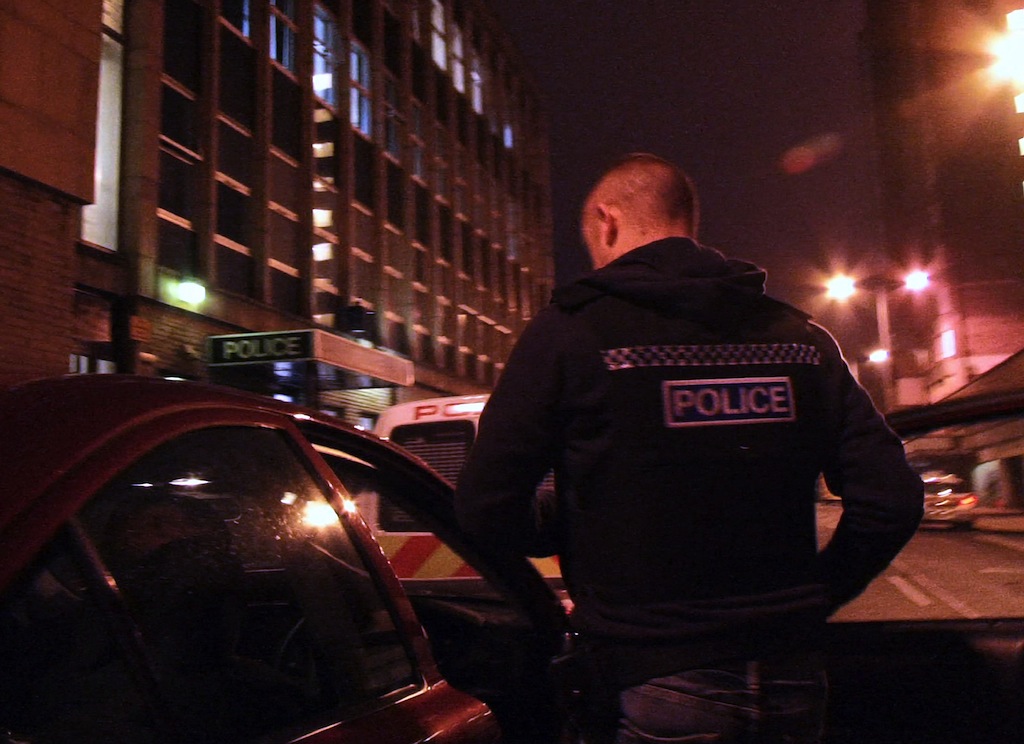 Three years ago Telford police allowed cameras to start filming what was to become one of the biggest child sex abuse cases in the UK - the investigation, Operation Chalice, eventually encompassed over 100 victims, and around 200 suspected perpetrators. The Hunt For Britain's Sex Gangs follows, with unprecedented access, a live police investigation, showing just how difficult it is to secure justice for victims of sexual abuse, especially when some girls were just 11 when they were first abused.
Three years ago Telford police allowed cameras to start filming what was to become one of the biggest child sex abuse cases in the UK - the investigation, Operation Chalice, eventually encompassed over 100 victims, and around 200 suspected perpetrators. The Hunt For Britain's Sex Gangs follows, with unprecedented access, a live police investigation, showing just how difficult it is to secure justice for victims of sexual abuse, especially when some girls were just 11 when they were first abused.
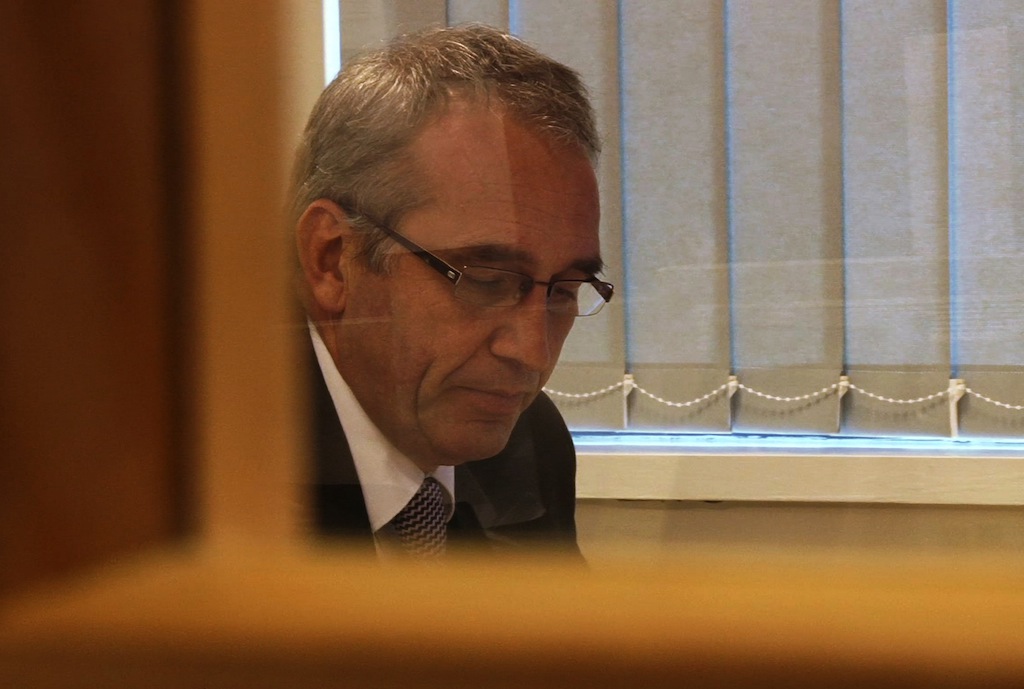 We look over the shoulders of the police during both breakthroughs and setbacks - we are there when the raid the home of the man suspected to be the ringleader, see his interrogation unfolding, and in an electrifying moment in the film, witness the delight of the investigating officers when he dramatically changes his story.
We look over the shoulders of the police during both breakthroughs and setbacks - we are there when the raid the home of the man suspected to be the ringleader, see his interrogation unfolding, and in an electrifying moment in the film, witness the delight of the investigating officers when he dramatically changes his story.
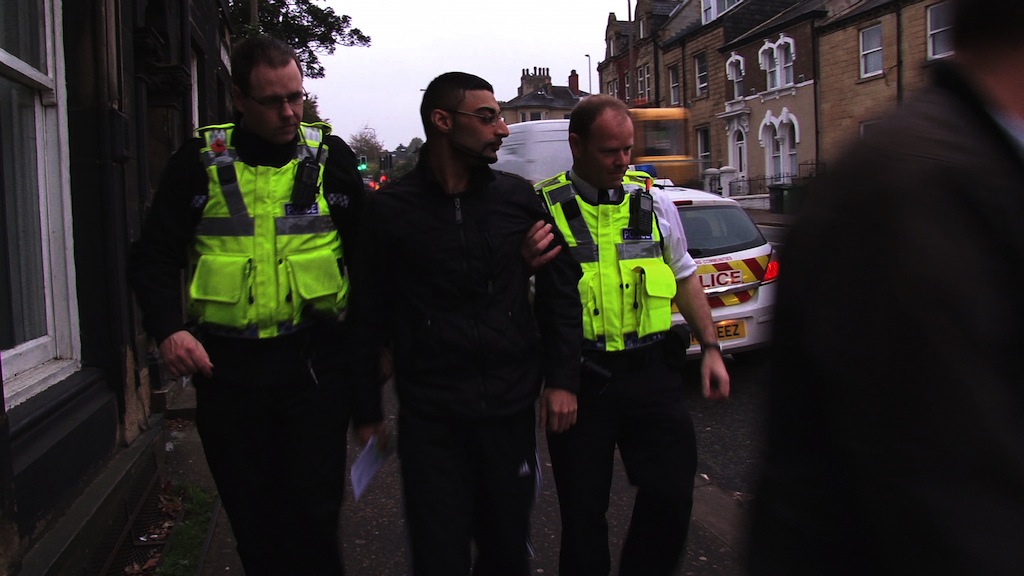 Gaining the trust of victims - who as a result of the grooming process, don't see themselves as victims - is key to the success of the case, but it takes months for the police to win their trust and keep them on board as they prepare for the harrowing process of going to court. As the police work with the victims, they begin to understand a vicious cycle of grooming, which starts with flattery and friendship, then moves onto a more overtly sexual relationship, and then finally becomes exploitative as the groomers pass the girls around their networks of friends and family for sex. One officer comments: "It's easy to manipulate the mind of a child - and that's what these girls are - children".
Gaining the trust of victims - who as a result of the grooming process, don't see themselves as victims - is key to the success of the case, but it takes months for the police to win their trust and keep them on board as they prepare for the harrowing process of going to court. As the police work with the victims, they begin to understand a vicious cycle of grooming, which starts with flattery and friendship, then moves onto a more overtly sexual relationship, and then finally becomes exploitative as the groomers pass the girls around their networks of friends and family for sex. One officer comments: "It's easy to manipulate the mind of a child - and that's what these girls are - children".
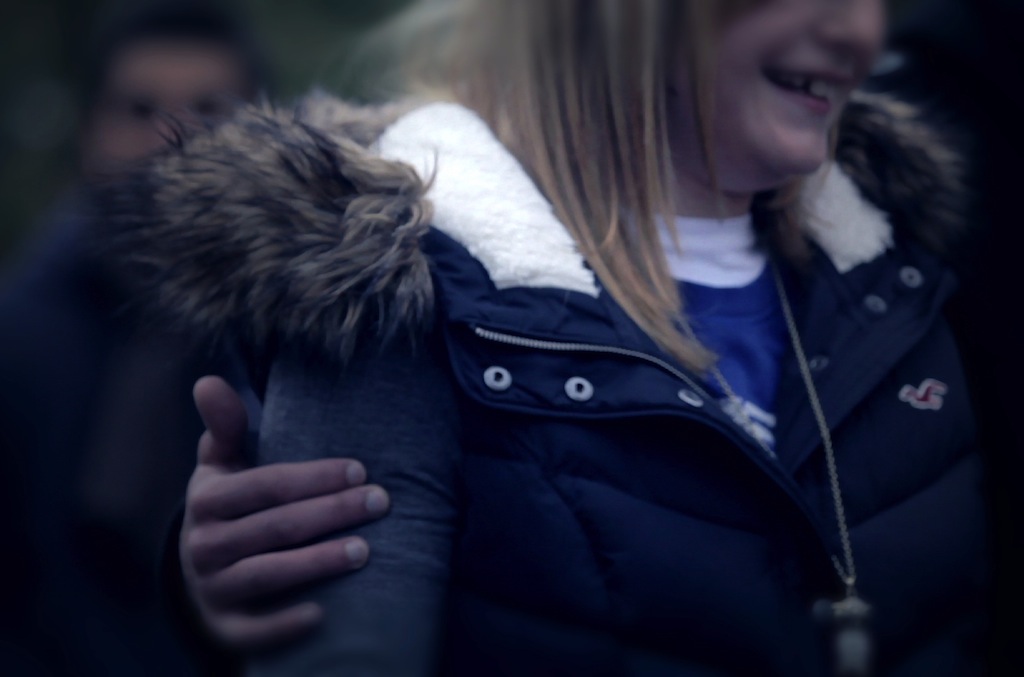 After two years of police work, the trial collapses and the jury is discharged, after seven defence barristers aggressively cross examine one of the victims over three weeks on the witness stand, reducing her to tears. The film questions whether children who are the subject of sexual abuse are re-violated by the judicial system itself.
After two years of police work, the trial collapses and the jury is discharged, after seven defence barristers aggressively cross examine one of the victims over three weeks on the witness stand, reducing her to tears. The film questions whether children who are the subject of sexual abuse are re-violated by the judicial system itself.
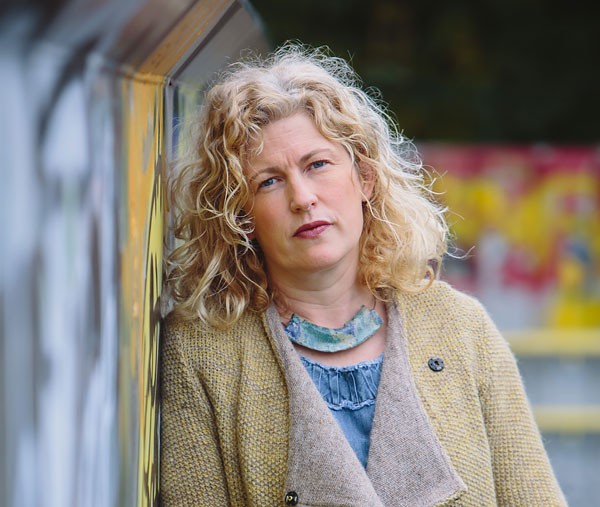 Directed by documentary maker, Anna Hall, who first learnt about this phenomenon of predominantly Pakistani men grooming white school girls 17 years ago, The Hunt for Britain's Sex Gangs is her third film for Channel 4 on the subject. Her previous film, Britain's Sex Gangs, was broadcast on Channel Four in 2011, and can still be watched on 4OD here.
Directed by documentary maker, Anna Hall, who first learnt about this phenomenon of predominantly Pakistani men grooming white school girls 17 years ago, The Hunt for Britain's Sex Gangs is her third film for Channel 4 on the subject. Her previous film, Britain's Sex Gangs, was broadcast on Channel Four in 2011, and can still be watched on 4OD here.
Click below to hear Anna Hall and Barrister, Hugh Davies, QC discussing the issues raised in the film on BBC Radio Four's Woman's Hour


If you want to understand the grooming process, watch this video produced by the NSPCC
As part of our previous film - Britain's Sex Gangs - Colin O'Toole produced a dramatised reconstruction of how the grooming process unfolds. You can watch the 10 minute drama below
KEY FACTS ABOUT THE HUNT FOR BRITAIN’S SEX GANGS
- Anna Hall first found out about the Telford investigation in 2009, and secured access in 2010
- At its peak, investigation was looking at 106 victims, and over 200 suspected perpetrators.
- In 2 arrests phases (Dec 09; March 2010) 9 men arrested – all British/Pakistani.
- Victims were overwhelmingly white (one or two mixed race).
- Youngest victim they interviewed was 11 at the time the abuse started.
- Abuse mainly took place around the market town of Wellington, part of Telford. Wellington has a small Pakistani community, living along a few streets. Our main victim, Sarah, lived on the same street as her abusers.
- Intelligence had been coming in for 18 months – provided by families and social services. David, father in our film, had been following his daughter; watching her get into cars; clocking identities and registration numbers. Police unable to act because girls would not give statements (same as in Keighley investigation in 2002).
- Telford police decide to arrest on intelligence alone. The thing which was very brave was that they didn’t have any witness statements at the time of the arrests. They then invited the victims in for questioning while the men were in custody. They then had enough information to charge the men and remand. About 9 girls were invited in for questioning at this point.
- In the first trial 9 men were on trial. 7 were married; one a grandfather. They had 49 counts altogether including trafficking; rape; sexual activity with a child and inciting child prostitution.
- Operation Chalice led to 59 and a half years worth of convictions. The main perpetrators, Ahdel Ali (Eddie) and Mubarek Ali (Max) received 18 years and 14 years respectively. They each got a further 8 years on extended licence. MAX convicted for human trafficking and controlling child prostitution; Eddie convicted of numerous sexual offences with children including rape of 13 year old.
- Telford Police were the first Police Force to use the trafficking legislation on these kind of gang grooming cases. The trafficking legislation is part of 2003 Sexual Offences Act which says it is illegal to move or intend to move people for the purposes of sex. The crucial thing about the trafficking legislation is that if victims can be registered under the National Referral Mechanism they then get trafficking status which means that under the European convention (Palermo Protocol) victims who are under 16 cannot consent to their own sexual abuse. This should have been the weapon in the prosecution case – but the significance of trafficking status is not widely understood. If this had been used properly in the Telford case, the defence wouldn’t have been able to say that the girls had consented to the sexual activity.
- In the main trial, one victim was on the witness stand for 3 weeks, cross-examined by 7 defence barristers. There were incidents when the victims were reduced to tears; they were shouting and crying, irrelevant information was brought up about their backgrounds and the cross-examination was allowed to continue. Special Measures for vulnerable young people in court currently include giving evidence by video link or screen from court – but Judges vary in how they interpret the level of vulnerability. In the second trial, the victims felt they were treated with more respect and given frequent breaks, but it was a different judge.
- Critical things campaigners are calling for:
a) cross-examination to take place in Judge's chambers – so victim does not have to go through harrowing court experience
b) more rehab places. Only one specialist unit in the country at the moment
c) Dof E need to put CSE on the PHSE curriculum
Tweets right now about Trafficking:-
Awards
- Winner - RTS Journalism Awards - Best Domestic Current Affairs Programme - in 2014
- Nominee - BAFTA for Current Affairs - in 2014
- Excellence in Production Nominee - RTS Yorkshire Awards - in 2014
- Best Freelancer - RTS Yorkshire Awards - in 2014
- Nominee - Grierson Documentary Awards - Best Current Affairs - in 2014
- Official Selection - LA Femme Film Festival - in 2013
- Winner - Best Investigation - The Asian Media Awards - in 2013
- Domestic Current Affairs Doc nominee - AIB Awards - in 2013
- Winner - Investigative Doc - AIB Awards - in 2013
- Winner - Anti Slavery Media Awards - Best TV Doc - in 2013
- Nominee - Broadcast Award for Best Current Affairs - in 2013
- Women In Film & TV - Current Affairs Award - in 2013
Reviews
-
"Film-maker Anna Hall produces the kind of documentaries that leave parents with sleepless nights"
Lesley Roberts - The Sunday Mail -
"This was a worthwhile and important documentary, made with care and journalistic diligence"
AA Gill - The Sunday Times -
"I want to scream: but what about the children? Nobody remembers the children. Who is going to take care of them?"
Miriam Gonzalez - The Times -
"the police in Telford stuck to a job made all the more challenging by the fact that the main suspects, who had repeatedly threatened their victims, were bailed, and therefore could potentially intimidate witnesses."
Andrew Anthony - The Observer -
"Important journalism, and a brutal picture of a double hell"
Sam Wollaston - The Guardian -
"The police came out of it pretty well – sensitive, dogged and ultimately successful"
Tom Sutcliffe - The Independent -
"exactly the sort of documentary you want Channel 4 to be making and want television to show"
Jim Shelley - The Daily Mail -
"Unravels the evil and shocking extent of child grooming carried out by these gangs."
Cheryl Mullin - Birmingham Mail -
"Must see TV - this harrowing Dispatches film could not be more timely."
Jane Simon - Daily Mirror -
"powerful and timely documentary"
Gerard Gilbert - The Independent -
"Girls giving evidence against their abusers were subjected to unforgivable distress"
Andrew Norfolk - The Times -
"I’ve been following this story from the inside for the past three years, documenting for Channel 4 the journey taken by West Mercia Police"
Anna Hall - The Times -
"Sarah's story is so horrific it stops me in my tracks"
Tazeen Ahmad - The Daily Mirror -
"A timely investigation"
Daily Mail -
"look at my 12-year-olds, they would not have a clue how to deal with this situation"
Maggie Brown - The Guardian -
"demonstrates the extraordinary lengths the police must go to in order to secure convictions of this type."
Brian Woods - The Times -
"unprecedented access to a live investigation"
John Dugdale - Sunday Times -
"Abby, was aggressively cross-examined by seven barristers every day for three weeks. Each represented a different man charged with sexually exploiting her over two years."
Louise Tickle - The Observer -
"a shocking portrayal of evil but also of painstaking police work"
Mail on Sunday -
"The Children's Commissioner estimates that at least 10,000 children may have been victims."
Sunday Mirror -
"raises vital questions about how sex abuse victims are quizzed in courts"
Halina Watts - Sunday Mirror -
"Anna Hall’s horrifying documentary shows the difficulties of proving a case beyond reasonable doubt"
David Chater - The Times -
"both chills and boils the blood"
The Guardian Guide -
"this documentary reveals just how difficult it can be to secure justice for victims"
Daily Mail Weekend -
"captures harrowing testimony from young victims"
Telegraph Weekend -
"another hugely worthwhile project from the True Vision team... this film demands attention."
Phil Harrison - Time Out -
"Three years of superb filming show the course of Operation Chalice. A shocking account of police work at its toughest and a powerful argument for changing how these cases are tried."
David Butcher, The Radio Times -
"powerful, enthralling and absolutely vital viewing"
Stop the Traffik -
"Behind the Scenes - Lifting the lid on sex crimes"
Anna Hall in Broadcast
 If you have been affected by the issues in this film, click here for information on organisations that can offer help and support.
If you have been affected by the issues in this film, click here for information on organisations that can offer help and support.

